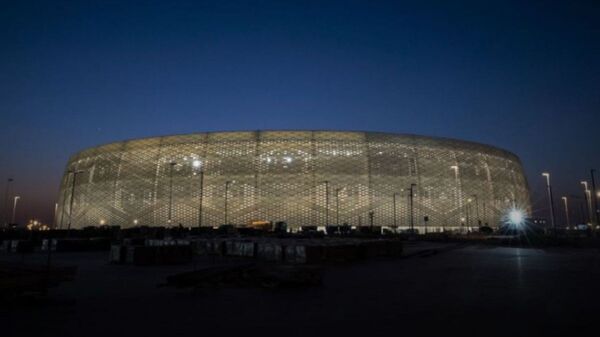Qatar looks to boost technology and tourism sectors after buzz of World Cup

Eight stadiums, 64 enthralling matches, 1.4 million fans, 12 years of preparation and a $220 billion grand sporting event.
The 2022 FIFA World Cup put the spotlight on Qatar as it worked to diversify its economy by focusing on the tourism and sports technology sectors.
More than two months after the curtain came down on the football tournament, two questions remain: how is Qatar using the attention it gained? And what does the future look like for its developing sectors?
Just after the World Cup, for about 15 days, they felt the country was empty.
But then the cruise ships came and soon the other tourists trickled in, said Boutayna Iraqi, a tour guide with 365 Adventures in Doha.
Before the World Cup, Qatar’s tourism report for the first half of 2022 showed nearly a million people visited the country from abroad.
The overall attendance at World Cup matches was 3.4 million, a news agency reported.
Even after the World Cup buzz settled down, the country registered a “healthy growth” of visitors, with 3,559,063 people arriving on flights in January 2023, air transport statistics released by Qatar’s Civil Aviation Authority showed.
It marked a 64.4 per cent increase from the same period in 2022.
Apart from regular tourists, they have had many groups of tour operators in the past two months, many of whom came on a recce to explore Qatar as a travel destination, Ms Iraqi said.
There has been an increase in demand for stadium tours. The prices for most activities are much lower now so more people are interested.
Qatar now aims to attract six million visitors a year by 2030 and increase the contribution of the tourism sector to its gross domestic product from 7 per cent to 12 per cent.
Doha was recently recognised as the Arab Tourism Capital 2023 by the Arab Tourism Organisation.
The Qatar government is “particularly focused” on attracting tourists from outside the Middle East, said Nada Farouk, founder and chief executive at Turismo, an innovation-driven tourism platform.
This includes initiatives like easing visa restrictions and investing in marketing campaigns to promote Qatar as a premium destination, she said.
The government is also working to develop new attractions and experiences that will appeal to a diverse range of visitors.
While Mr Massouh hopes it will become “much easier” for tourists to enter the country, Ms Iraqi is keen to see more structuring in the tourism sector.
The World Cup gave a huge boost of confidence to the local hospitality industry, said Martin Kendall, the general manager of City Centre Rotana, which is among the leading hotels in Doha.
All the economic predictions, including the tourism ambitions, point to a growth trajectory … they will see more emphasis than ever on service delivery right across the value chain.
He is also optimistic that the “new segment” of customers who visited the region for the first time during the World Cup, returned home telling tales of discovery, great service and an exciting destination.
Future investments
Qatar’s $450 billion sovereign wealth fund said last month it was looking to rebalance its portfolio and was considering investments in football, finance and technology.
In the run-up to the World Cup, sports technology got a big push from the state, with organisations including Qatar SportsTech and Qatar Development Bank providing support and funding to develop cutting-edge technology in the field.
The post Qatar looks to boost technology and tourism sectors after buzz of World Cup appeared first on Travel And Tour World.
* This article was originally published here
Comments
Post a Comment